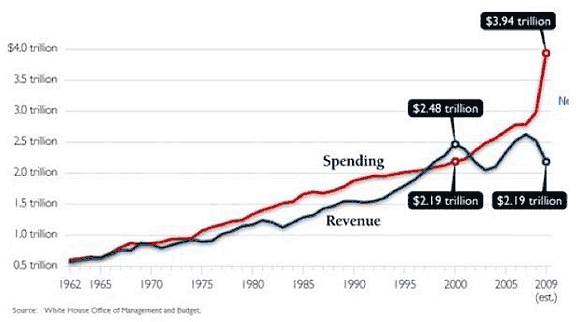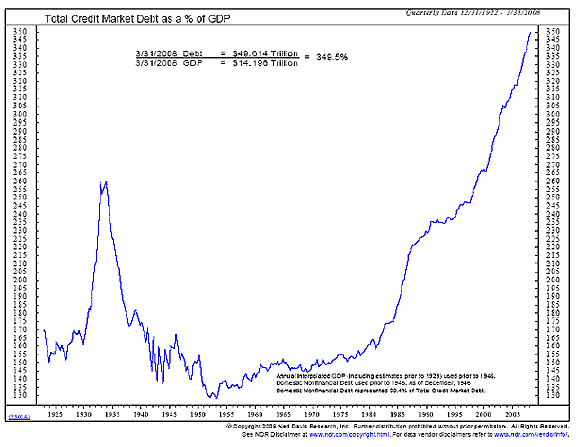Henry Blodget has a good post with a couple of great graphs addressing the trends in federal revenues and expenditures. I’ll borrow the graphs and then offer a couple of comments:


Now, those sorts of numbers have been published before in one form or another but these two do a good job of bringing home the reality we face. So, what are the implications?
Blodget suggests that we either spend a couple of decades paying back the debt and suffering the implications of living on less during that period or it ends in a debacle.
I tend to agree that in a rational world the first would be a likely outcome and the second would occur if the political class continues to ignore reality. I tend to think that all the talk of deficit reduction might well be a recognition within the hallowed halls of government that we have indeed reached a point at which our ability to float substantially more debt is going to be constrained. If that’s the case then one has to ask how do you sell this to the public without a wholesale restructuring of the division of spoils in the American society. In other words, how do you maintain the status quo while you ask most of the country to put aside promises upon which they’ve constructed their lives.
You see, you might well propose that we suffer for a couple of decades in order to put the fiscal house in order, but if you offer that solution then you have to deal with an unequal distribution of suffering. Right now, the burden has fallen more or less on the private sector. At the state level, government employees are starting to feel the pinch, so we’ll see how that plays out. At the federal level, it’s business as usual.
Spreading the pain is not something that politicians are likely to willingly undertake. If you don’t do so then you risk schisms within society that give rise to radical solutions that fundamentally change structures. Look at the results of recent elections, the rise of groups like the Tea Baggers and the apparent attractiveness of populist rhetoric to get a sense of the unease that exists.
You can talk all you like about Wall Street salaries, but if asked to suffer substantially for an extended period of time expect the electorate to demand something in return that goes far beyond a few highly paid bankers. I doubt that quid pro quo will be offered willingly by those enjoying its spoils so the exciting ending Blodget suggests might well be one that none of us can postulate.
- Bulenox: Get 45% to 91% OFF ... Use Discount Code: UNO
- Risk Our Money Not Yours | Get 50% to 90% OFF ... Use Discount Code: MMBVBKSM
Disclaimer: This page contains affiliate links. If you choose to make a purchase after clicking a link, we may receive a commission at no additional cost to you. Thank you for your support!



Leave a Reply